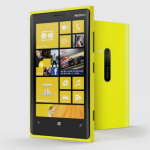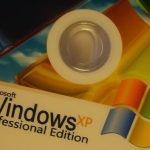Anyone can mine for bitcoins, even you

Although the decentralized digital currency first appeared in 2009, Bitcoin’s popularity has really taken off in recent weeks and the value of the coins has skyrocketed since January. The world’s largest Bitcoin exchange, Mt. Gox, currently has the currency listed as being worth $209 per coin.
Although you can purchase bitcoins, the real way to get your hands on some is to mine for them using a computer. The process involves solving a complex mathematical algorithm and it becomes harder to find blocks of bitcoins as time goes on because there’s only a set number of them in the system (the total number of bitcoins in existence will never exceed 21 million).
Nokia Lumia 920 is the most popular Windows Phone device

AdDuplex, which touts itself as the "largest cross-promotion network for Windows Phone and Windows 8 apps", released a new monthly report which shows the Nokia Lumia 920 as the most popular Windows Phone device currently available. The handset holds a 14 percent market share among devices running Microsoft's smartphone operating system.
According to the report, the Lumia 920 dethroned the Lumia 800, "by a very small margin", for the title of the most popular Windows Phone device. The 920 was released worldwide in November 2012. The latter made its way onto the market one year earlier and also holds approximately a 14 percent market share among Windows Phone handsets, albeit slightly lower when it comes down to actual numbers.
FairSearch files complaint against 'Google's anti-competitive' mobile strategy, in the EU

FairSearch, a coalition comprised of 17 global businesses including Expedia, Kayak, Microsoft, Oracle, Nokia and TripAdvisor, has announced that it has filed a complaint with the European Commission (EC) against Google, citing an "anti-competitive strategy" and consolidating "control over consumer Internet data for online advertising" in the mobile space.
FairSearch uses two reports from Strategy Analytics (SA) and eMarketer to base its claims. According to the coalition, Google exerts its dominance in the mobile operating system space with Android, which held a 68.4 percent market share in 2012 per SA, and in mobile search advertising, which eMarketer says Google dominates with a 96 percent market share.
Adobe updates Flash Player and AIR, announces future plans

Adobe has refreshed its cross-platform web media playback and runtime tools with the release of Adobe Flash Player for Other Browsers 11.7, Adobe Flash Player for Internet Explorer 11.7 and Adobe AIR 3.7.0.
There’s only one notable change to report in this first stable release of Flash Player 11.7: enhancements to the sandboxing features that allow it to better address application launches in protected mode.
Microsoft rolls out Office 2010 SP2 beta

By now a number of you have probably joined me in moving on to Office 2013, either the desktop version or the new Office 365 Home Premium subscription adaptation of the suite. However, there is nothing wrong with the previous Office 2010 release of the product, and many users and businesses are still running that software.
For those, there is some good news this morning -- Microsoft has released a beta version of Service Pack 2 for Office 2010. The SP2 beta also includes Sharepoint 2010 support as well. In addition, it has improved support for Internet Explorer 10 and Windows 8, updates for system reliability, program compatibility, security and more.
EE to double the speed of its 4G network in the UK

EE has announced plans to double the speed of its 4G network in 10 British cities, increasing the maximum theoretical speed to 130Mbps, or around 80Mbps in the real world. The mobile operator will also be doubling the average speeds for 4GEE customers to more than 20Mbps.
Double-speed 4G, as the improved offering will be known, will be rolling out to Birmingham, Bristol, Cardiff, Edinburgh, Glasgow, Leeds, Liverpool, London, Manchester, and Sheffield by the summer.
Is your photo out-of-focus? Try SmartDeblur 2.0 beta

Vladimir Yuzhikov has released the first beta of SmartDeblur 2.0, a powerful tool for recovering data from blurred images.
Top of the new features list is an “auto-detect blur” option, which allows the program to automatically figure out whether your image is suffering from motion, Gaussian, or just plain old out-of-focus blur, and perform the appropriate corrections.
5 million Americans cut cable's cord
What interesting timing. The same day Ericsson agrees to buy Mediaroom from Microsoft, Nielsen releases fascinating report "Free to Move Between Screens". The two things are strangely related. A decade ago, the IPTV division made more sense. Today, television habits are changing, something Microsoft brianiacs apparently recognize and others would be wise to do likewise. Nielsen hints at the future.
Consider where we are in just three years. Before iPad's launch in April 2010, few US television networks (I don't know that any) offered two-screen experiences. Now they're commonplace, under the presumption millions of Americans sit with tablets in front of their boob tubes (and they do). HBO Go launched two months earlier. Go back six years, you have Amazon, Apple and Netflix streaming and Hulu's launch. Along with the DVR's rise in popularity, how Americans consume television programming dramatically changes.
Microsoft dumps Mediaroom

Is IPTV an epic fail, or just for Microsoft? Ericsson is buying Mediaroom, ending weeks of rumors and leaving me (and presumably others) wondering what this means for Xbox 720 (or whatever Microsoft calls it) as an entertainment hub. Perhaps the visionaries up in Redmond, Wash. see something the Stockhom, Sweden-based telecom equipment giant should: IPTV has no long-term future.
Mediaroom is great. I've used the product since February 2008, when AT&T U-Verse came to the neighborhood. The program guide is straightforward and functional, and there are lots of trendsetting features, or were. Not much changed over the past two years, even while rivals added more HD-channel recording capabilities, among other enhancements. Many of the best, early features, such as streaming recorded shows among other boxes in the home, are mainstream from rivals. Mediaroom was not high on Microsoft's priority list.
Game time: Bing talks NCAA championship

Tonight is the big game, the culmination of March Madness despite the month having changed to April. It is one of the most heavily followed sports tournaments and betters win and lose fortunes with their brackets. This year Louisville and Michigan square off on the court for a chance at history.
While Bing, the Microsoft search engine, does not pretend to make predictions about which college will emerge on top when the final buzzer sounds, the service did release a bit of data about what fans are searching for in the time leading up to the showdown.
Microsoft beats Windows XP users into submission

What shameless exploitation. I know PC sales are slow, with Windows 8 giving no lift. So Microsoft resorts to this? Today, Stephen Rose issues an ultimatum: Windows XP support ends in 365 days. From April 8, 2014, there will be no more patches and updates for you.
How outrageous! Microsoft cuts off XP users thirteen-and-a-half years after releasing the operating system. My leather jacket is older, and the clothier who made it isn't forcing me to buy a new one. Nor does Texas Instruments demand I upgrade from the calculator purchased in college. If users want to run Windows XP forever, Microsoft should let them. Instead, it's compute at their own risks or upgrade.
HP makes a Moonshot

Before you think that Hewlett Packard is joining the Jeff Bezos-Elon Musk space race, I should clarify that the new HP Moonshot is actually a server that the company unveiled today. HP hopes that this new architecture will be a revelation to the current server market with a number of new features.
First, HP promises, not the moon, but that Moonshot will use 89 percent less energy, 80 percent less space and cost 77 percent less, compared to traditional servers.
The Apple-Google duopoly so dominates app downloads there is little room for BlackBerry and Windows Phone

Mobile app store downloads from the four major stores -- Apple, BlackBerry, Google and Microsoft -- reached 13.4 billion in first quarter, generating $2.2 billion revenue, according to Canalys. Combined, revenue from new sales, in-app purchases and subscriptions grew 9 percent from fourth quarter, while number of downloads climbed by 11 percent.
There are a half-dozen measures that mark successful platforms, with money being the most important. Developers typically go where they earn more. That's preface to a fascinating juxtaposition partly explaining developer preference for iOS, even though more Android devices ship and cumulative sales (750 million to 500 million) are larger. Google Play accounted for 51 percent of downloads during Q1. But Apple's App Store generated 74 percent of the revenue. Ponder those numbers for a moment.
WebSite X5 Free 10.0 adds server and new HTML5 image galleries

Incomedia has released WebSite X5 Free v10.0, a major new version of its beginner-friendly web building tool for Windows. The app, which is also available in a number of paid-for versions, now boasts an integrated webserver for faster site previews, overhauled template gallery and HTML5 image galleries.
Changes to the program’s interface include better file management, whereby all files linked to a project are automatically copied so the originals are left untouched. Aside from the new integrated web server, WebSite X5 10 also replaces the default IE engine for browser previews with Chrome’s Chromium engine.
Support for Windows XP ends a year from now, should you care?

In exactly 365 days Microsoft will stop offering support for its still widely used but venerable operating system. XP has certainly had a good run. Microsoft will have supported the OS for 12 years, which shows how incredibly popular it was (its success also perhaps speaks volumes about how much better than its successors it was perceived to be, I’m looking at you in particular Vista).
But now Microsoft is dropping extended support for XP, so what does that actually mean for consumers and businesses who are still using the OS?
Most Commented Stories
Windows 12.1 is everything Windows 11 should be -- and the Microsoft operating system we need!
Apple Intelligence will launch in beta and that’s unacceptable for a trillion-dollar company
© 1998-2024 BetaNews, Inc. All Rights Reserved. Privacy Policy - Cookie Policy.




